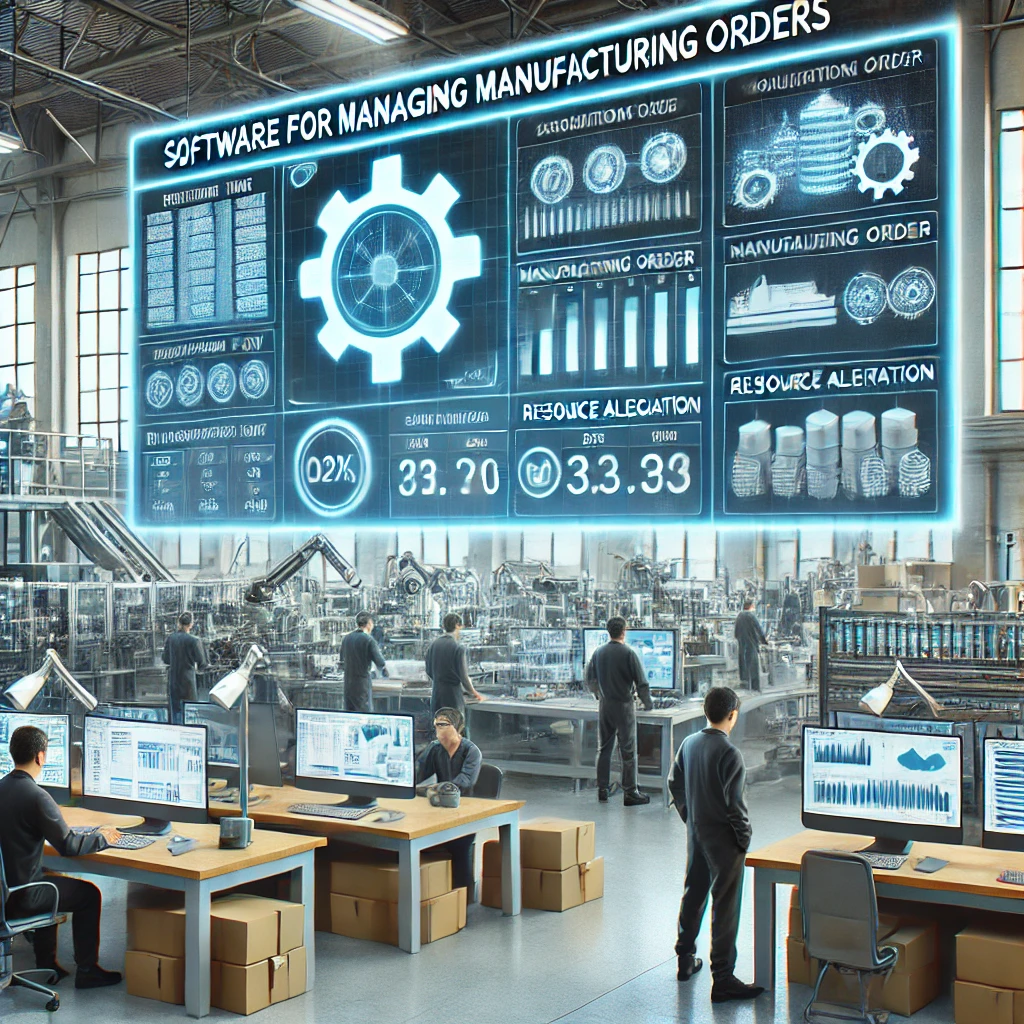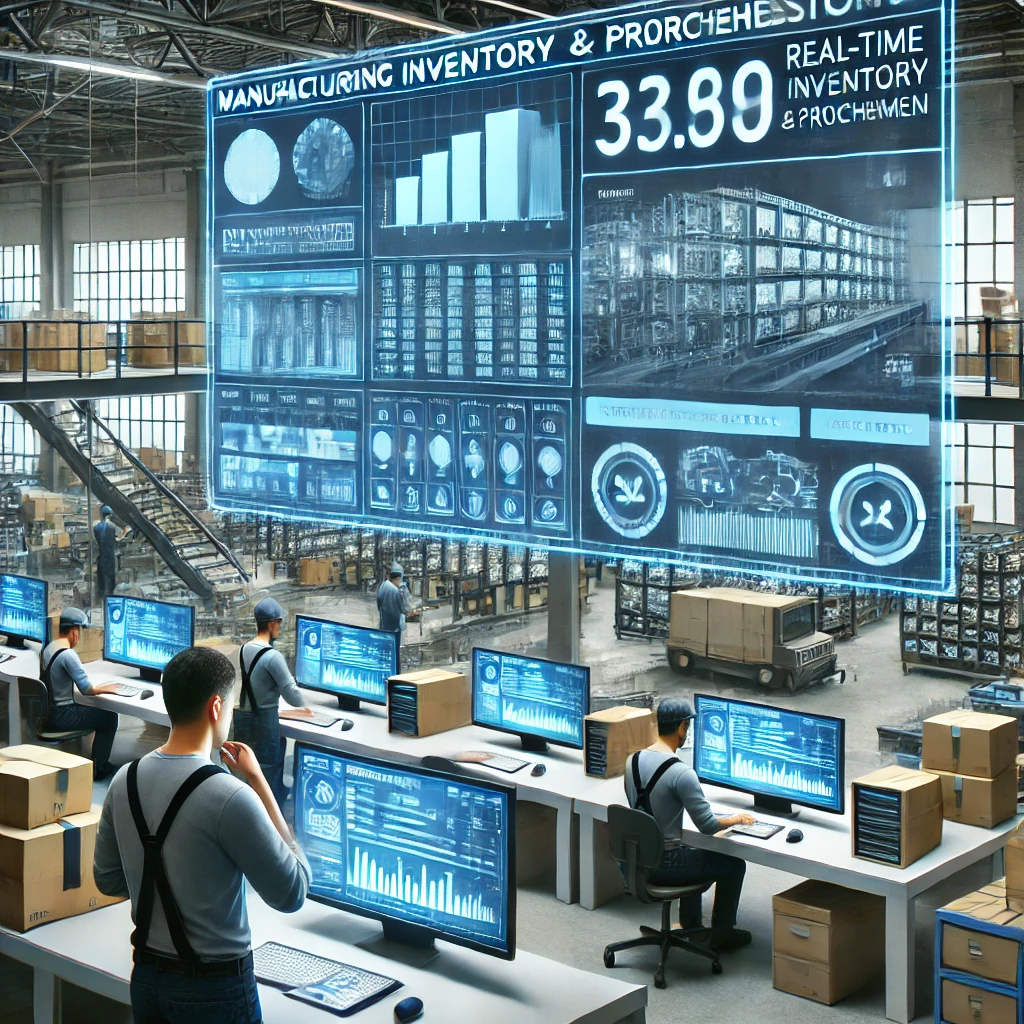In today’s fast-paced manufacturing environment, the ability to track and optimize production in real time is crucial. Manufacturing Execution Systems (MES) offer manufacturers the tools they need to manage, monitor, and control production on the shop floor. MES bridges the gap between an organization’s Enterprise Resource Planning (ERP) system and the operational processes on the factory floor, ensuring seamless coordination and execution of production activities.
In this article, we’ll explore what an MES (Manufacturing Execution System) is, its key features, and how it helps manufacturers achieve efficiency and control in real-time operations.

What is a Manufacturing Execution System (MES)?
An MES (Manufacturing Execution System) is a software solution that helps manufacturers track and control production activities in real-time. It provides real-time visibility into production processes, machine performance, and labor utilization, allowing manufacturers to manage and optimize their operations efficiently. By integrating MES with ERP systems, manufacturers gain a comprehensive view of both their financial and operational data, leading to better decision-making and improved production outcomes.
With an MES, manufacturers can:
- Monitor production progress in real time.
- Track machine and equipment performance to minimize downtime.
- Manage work orders and ensure accurate execution of production schedules.
- Ensure product quality by tracking key metrics and enforcing quality control measures.
- Optimize workforce utilization by assigning tasks based on availability and skillset.
An MES acts as the operational backbone of manufacturing operations, ensuring that production runs smoothly, efficiently, and on schedule.
Why Manufacturers Need an MES
The complexity of modern manufacturing requires a system that goes beyond traditional ERP solutions. An MES offers real-time insights that help manufacturers stay agile, reduce waste, and improve overall productivity. Here’s why an MES (Manufacturing Execution System) is essential for manufacturers:
1. Real-Time Visibility
An MES provides real-time data on production progress, machine performance, and workforce utilization. This visibility enables manufacturers to monitor every aspect of the production process, identify bottlenecks, and make adjustments as needed to avoid delays.
2. Improved Production Efficiency
By automating the tracking of production schedules, labor, and materials, an MES ensures that all resources are used efficiently. This leads to faster production times, fewer errors, and lower operational costs.
3. Enhanced Product Quality
Quality control is critical to maintaining product standards and customer satisfaction. An MES tracks quality metrics in real time, allowing manufacturers to catch defects early, make corrections, and ensure that only high-quality products reach the market.
4. Reduced Downtime
Machine downtime can severely impact production. An MES tracks machine performance and alerts managers when maintenance is needed, helping to reduce unplanned downtime and keep production running smoothly.
At Syncratech, we offer customized MES (Manufacturing Execution System) solutions that help manufacturers optimize their production processes, improve quality, and increase efficiency. Visit our homepage to learn more about how our MES solutions can benefit your business.
Key Features of an MES (Manufacturing Execution System)
When choosing an MES, it’s essential to look for features that provide real-time data, automate key processes, and improve overall operational efficiency. Here are some of the core features of an MES:
1. Production Tracking
An MES tracks work orders, production schedules, and material usage in real time, ensuring that production runs according to plan. This feature helps manufacturers monitor progress and adjust schedules as needed to meet deadlines.
2. Machine Performance Monitoring
By tracking machine performance and utilization, an MES provides insights into equipment efficiency and helps schedule preventive maintenance. This minimizes downtime and maximizes productivity.
3. Workforce Management
An MES allows manufacturers to assign tasks based on worker availability and skillset, optimizing labor utilization. It also tracks worker productivity, ensuring that tasks are completed efficiently and on time.
4. Quality Control
Maintaining product quality is a top priority for manufacturers. An MES tracks key quality metrics throughout the production process, ensuring that quality control measures are enforced and defects are minimized.
5. Data Integration
An MES integrates with other systems, such as ERP, to provide a unified view of both operational and financial data. This allows manufacturers to align production goals with business objectives and make data-driven decisions.
How Syncratech’s MES Can Help
At Syncratech, we understand the complexities of managing modern manufacturing operations. Our MES solutions provide manufacturers with the tools they need to monitor, control, and optimize their production processes in real time. Here’s how our MES can help your business:
- Real-time production tracking to monitor progress and make quick adjustments.
- Machine performance monitoring to reduce downtime and improve efficiency.
- Workforce management to optimize labor allocation and productivity.
- Quality control tools to ensure consistent product quality.
- Data integration for better decision-making and operational alignment.
By implementing an MES, manufacturers can improve efficiency, reduce waste, and ensure that production runs smoothly from start to finish. Visit our homepage to learn more about our tailored MES solutions.
Benefits of an MES (Manufacturing Execution System)
Implementing an MES provides several key benefits that can have a significant impact on manufacturing operations:
1. Increased Productivity
With real-time tracking and automation, manufacturers can streamline their operations and increase productivity. MES reduces manual tasks, minimizes errors, and ensures that resources are used efficiently.
2. Improved Quality Control
An MES ensures that quality control measures are enforced throughout the production process. By tracking quality metrics in real time, manufacturers can catch defects early and make corrections before they impact the final product.
3. Reduced Operational Costs
By optimizing production schedules, labor, and materials, an MES helps manufacturers reduce waste and lower operational costs. This leads to higher profitability and improved financial performance.
4. Better Compliance
MES systems help manufacturers maintain compliance with industry regulations by tracking production data, quality metrics, and documentation in real time. This ensures that manufacturers meet both internal and external quality standards.
FAQs About MES (Manufacturing Execution System)
1. How does an MES improve production efficiency?
An MES improves efficiency by automating key production processes, tracking real-time data, and optimizing resource allocation. This helps manufacturers reduce delays, minimize waste, and improve overall productivity.
2. Can an MES integrate with ERP systems?
Yes, most MES solutions integrate seamlessly with ERP systems, providing a unified view of both operational and financial data. This allows manufacturers to align their production goals with their overall business objectives.
3. Is an MES suitable for small manufacturers?
Yes, MES solutions are scalable and can be customized to meet the needs of manufacturers of all sizes. Even small manufacturers can benefit from improved visibility, automation, and control over their production processes.
4. How does real-time data improve decision-making in manufacturing?
Real-time data provides manufacturers with live updates on production progress, machine performance, and quality metrics. This enables quick decision-making and helps manufacturers respond to issues before they impact production.
Final Thoughts
In today’s competitive manufacturing landscape, having real-time visibility into production processes is essential for success. MES (Manufacturing Execution System) provides manufacturers with the tools they need to optimize their operations, improve quality, and reduce costs.
At Syncratech, we offer tailored MES solutions designed to help manufacturers streamline their production processes and achieve their operational goals. To learn more about how our MES can benefit your business, visit our homepage today.



